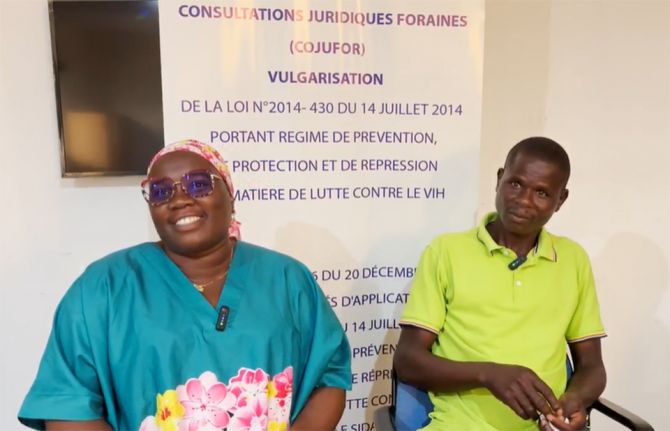
Update
Imams and faith leaders embrace HIV awareness in Côte d'Ivoire
19 December 2017
19 December 2017 19 December 2017Despite the scorching Abidjan heat, the Salam Plateau mosque stayed cool as imams, pastors, fathers and members of various religious groups along with women welcomed a UNAIDS delegation.
Imam Djiguiba Cissé gave an overview of his mosque and said that he and all the faith leaders gathered wanted to join UNAIDS in promoting HIV awareness.
Forty years of science and treatment have led to great progress in the AIDS response but now it's time to tackle stigma and discrimination, explained UNAIDS Deputy Executive Director Luiz Loures. Mr Loures reiterated that he needed faith leaders' help in making sure that violence against women is no longer tolerated and that men are better informed regarding HIV.
The imam said that compassion was a guiding principle of all faiths and that it should apply to faith leaders when they interact and care for people living with HIV. He also said that one of their objectives was to promote women. Women carry the greater burden of HIV globally and gender inequality is in large part responsible. Mr Cissé stressed that it was key to end violence against women and female genital mutilation. Female genital mutilation is prevalent in the north, north-eastern and western regions of Africa. Not only are there no known health benefits, it is painful and traumatic and can cause immediate and long-term health consequences to girls and women. The imam's final point to the congregation was to engage men to overcome some of these challenges and give young men a chance. More than 60% of Côte d'Ivoire's population is under 25 years of age, he explained, saying that more boys were resorting to migration or terrorism because they feel left out.
In January 2018, faith leaders led by Mr Cissé and with the help of UNAIDS are to attend an HIV awareness training encompassing the issues of stigma, status and empowerment.
Quotes
"We can be the decision makers because as faith leaders we can bring about change."
"I need you. You have proximity and know-how within your communities and that will lead to less stigma and discrimination in the AIDS response."



